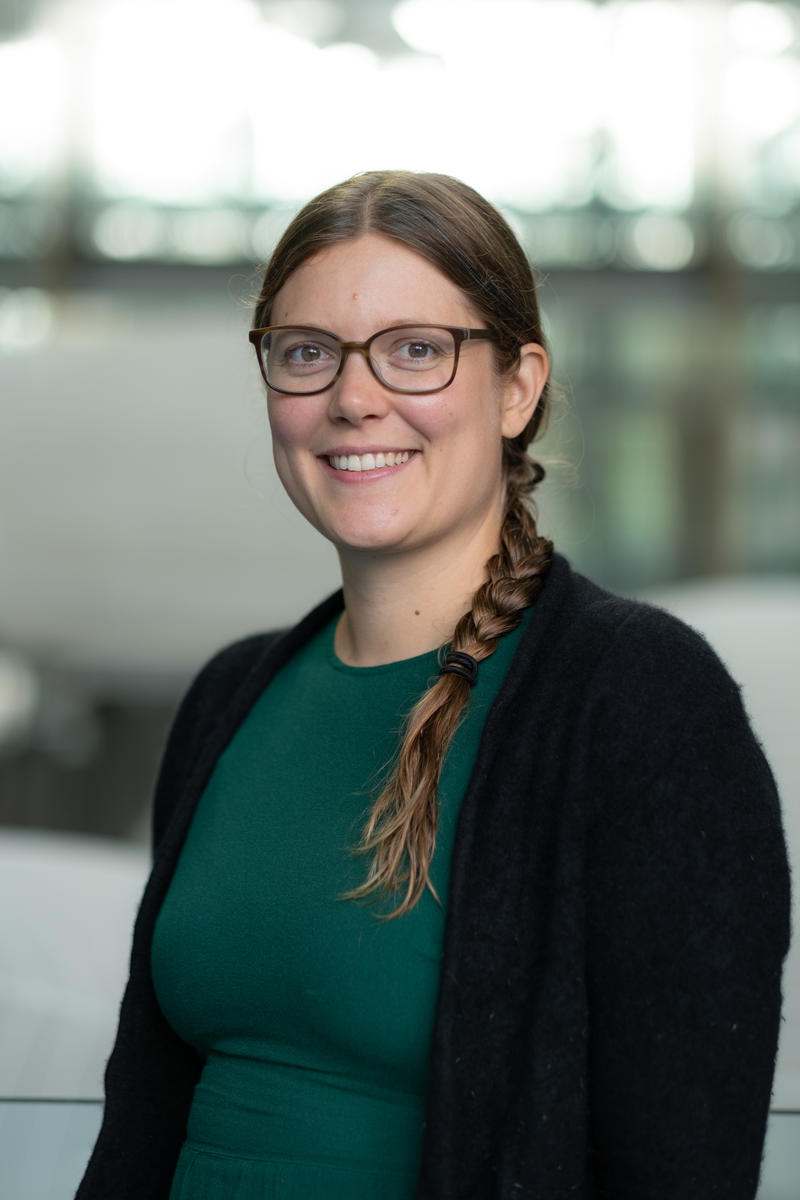Schoop Wins 2020 Packard Fellowship
Leslie Schoop, an assistant professor in the Department of Chemistry, has been awarded a 2020 Packard Fellowship for Science and Engineering by the David and Lucile Packard Foundation.
Schoop is one of just 20 scientists nationwide to receive the prestigious, early-career award.
Packard Fellowships are among the nation’s largest nongovernmental fellowships, designed to allow maximum flexibility in funding use. Each Packard Fellow receives $875,000 over five years to spend on research as they wish. The fellowships are awarded to encourage “blue-sky thinking” that could one day foster discoveries to improve people’s lives and broaden our understanding of the universe.

Photo by C. Todd Reichart
Schoop works at the interface of chemistry and physics, using chemical principles to find new materials with exotic physical properties. She is an associated faculty member of the Princeton Institute for the Science and Technology of Materials (PRISM), and a faculty researcher in the Princeton Center for Complex Materials (PCCM).
“Princeton is thrilled that the Foundation has honored Dr. Schoop with this extraordinary fellowship,” said University President Christopher L. Eisgruber.
“Now more than ever, we need science,” said Frances Arnold, a Class of 1979 alumna and the 2018 Nobel laureate in chemistry, chair of the Packard Fellowships Advisory Panel. “In a year when we are confronted by the devastating impacts of a global pandemic, racial injustice, and climate change, these 20 scientists and engineers offer us a ray of hope for the future.”
Notably, three recent Nobel laureates were also named Packard Fellows earlier in their careers, including Arnold (chemistry), Jennifer Doudna (chemistry), and Andrea Ghez (physics).
“I’m thrilled. It’s a huge honor,” said Schoop. “One of the things I love about this is the flexible funding. I like the freedom to go after those ideas that are not always the obvious next step. Sometimes, the ideas that don’t have a logical reason to pursue them are the ones that can have the highest impact in the end. You can miss the most interesting aspects of science if you just disregard everything that doesn’t follow your original idea.”
Schoop’s research focuses on building a bridge between solid-state chemistry and condensed-matter physics to create chemical guidelines for the development of new quantum materials. These materials could be the key to enabling future technologies like quantum computers, levitating trains, or novel, highly sensitive sensors.
“Many of these developments are driven by the discipline of physics. Chemical logic, however, can fundamentally change the field of quantum matter due to its ability to formulate rules based on parameters such as the nature of chemical bonding or electron counting rules,” said Schoop. “We are trying to establish guidelines that can predict quantum matter. We verify our predictions experimentally by synthesizing such materials and characterizing their electronic and magnetic properties.”
Schoop grew up in Germany near the borders of Belgium and the Netherlands. She was raised by a “very strong” single mother who cultivated the self-confidence and grit Schoop needed to rise in a world dominated by male scientists. While neither parent was a scientist, her grandfather was in the medical field. It was with him, Schoop said, that she shared a passion for making new discoveries. After Schoop earned her doctoral degree, she was trying to decide between a career in academia and what she imagined would be a more secure position in industry. “He told me, ‘You know, Leslie, money should never be a reason why you make a career decision. If you’re good at your job, the money will come.’ So, I followed his advice. And he was right.”
Schoop earned her diploma in chemistry from Johannes Gutenberg University in Mainz, Germany, pursuing undergraduate research with Claudia Felser. She earned her Ph.D. here at Princeton in 2015 with adviser Robert Cava. Her postdoctoral work at the Max Plank Institute for Solid State Research in Stuttgart, Germany, was under the advisement of Bettina Lotsch. She joined the faculty at Princeton’s Department of Chemistry in September 2017.
The David and Lucile Packard Foundation is a private family foundation created in 1964 by David Packard, cofounder of the Hewlett-Packard Company, and Lucile Salter Packard. Each year, the foundation invites 50 universities to nominate two faculty members for consideration. Nominees must be eligible to serve as principal investigators on research in the natural and physical sciences or engineering, and must be within the first three years of their faculty careers.
Since 1988, the foundation has awarded $447 million to support 637 scientists and engineers from 54 national universities in the fields of physics, chemistry, mathematics, biology, astronomy, computer science, earth science, ocean science, and all branches of engineering.
